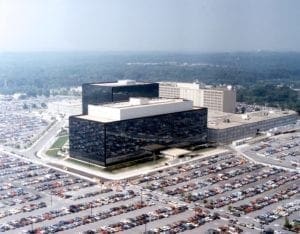Remember: the FBI Is Still Trying to Have Full Access to NSA’s ‘Unfiltered’ Data
This article was featured in our weekly newsletter, the Liberator Online. To receive it in your inbox, sign up here.
As the country follows the cries of politicians in Washington doing their best to undermine our security and freedom in the name of the war on terror, don’t forget that, just a few months before the deadly Orlando shooting, the Obama administration was reportedly looking into allowing the National Security Agency (NSA) to share data on private communications with other intelligence agencies without the benefit of privacy protections.
 On paper, access to the contents of phone calls, emails, satellite transmissions, and communications between individuals abroad gathered by NSA employees is restricted, meaning that agencies such as the Federal Bureau of Investigation (FBI) are not allowed to use data collected by the NSA without due process. But due to executive order 12333, an order signed by President Ronald Reagan in 1981 that binds US intelligence agencies to cooperate with CIA requests for information, the NSA may soon be sharing information on innocent Americans with the FBI.
On paper, access to the contents of phone calls, emails, satellite transmissions, and communications between individuals abroad gathered by NSA employees is restricted, meaning that agencies such as the Federal Bureau of Investigation (FBI) are not allowed to use data collected by the NSA without due process. But due to executive order 12333, an order signed by President Ronald Reagan in 1981 that binds US intelligence agencies to cooperate with CIA requests for information, the NSA may soon be sharing information on innocent Americans with the FBI.
According to the New York Times, the current administration is interested in expanding the NSA’s reach by giving the intelligence community access to unprocessed information pertaining to countless Americans who were never accused of any crime to begin with. But by augmenting the intelligence community’s access to more information, the haystack becomes much larger, making it harder for officials to find the needle.
According to Alexander Abdo, a lawyer with the American Civil Liberties Union, the country should not be allowing the NSA to “spread that information further in the government” if protections on people’s personal information are not being erected. But according to the spokesman for the office of the Director of National Intelligence, the final rules under consideration by the current administration would help to “ensure that they protect privacy civil liberties and constitutional rights while enabling the sharing of information that is important to protect national security.”
Despite the US government’s claims that officials are doing all in their power to protect innocent Americans from the government’s overreach, abuse exists. Giving agencies such as the NSA and the FBI blanket access to the private information of others has and will continue to backfire, allowing employees and officials to abuse their power whenever possible.
The framework under review by the current administration has been under development since when President George W. Bush triggered the change but now, the Obama administration is carrying on with the task of developing a framework to put the changes in motion. And as officials work on a way of continuing the NSA’s involvement with the country’s war on drugs while boosting the agency’s role, progressive and conservative politicians, and even presidential candidates, continue to justify their support for mass surveillance by evoking the war on terror.
Expect to hear more on this and other efforts to boost the surveillance state, especially after the tragic killing of Pulse club goers in Orlando, Florida.




















